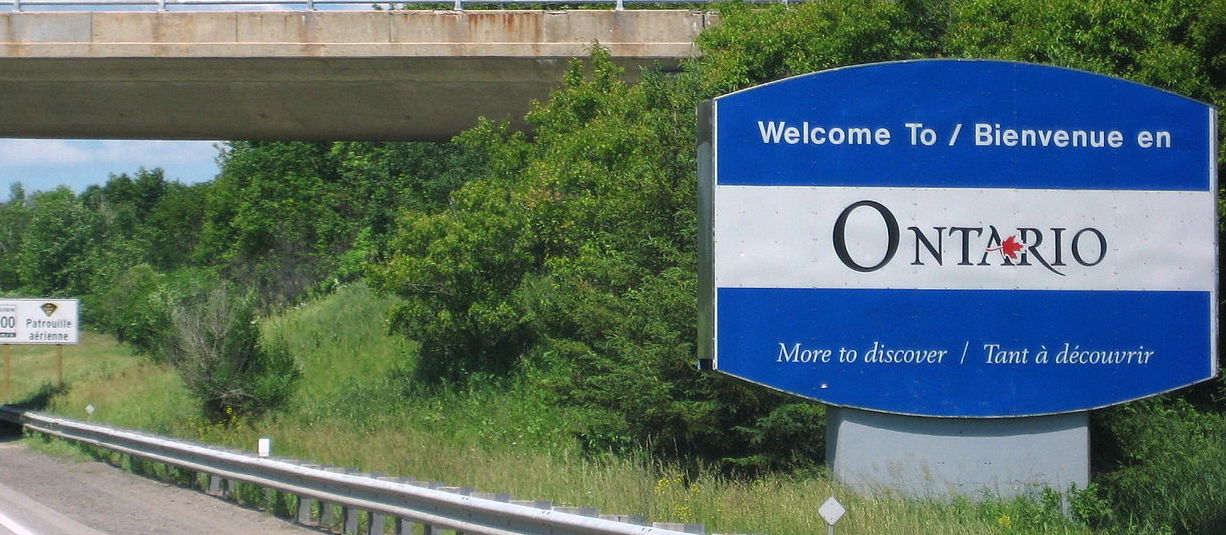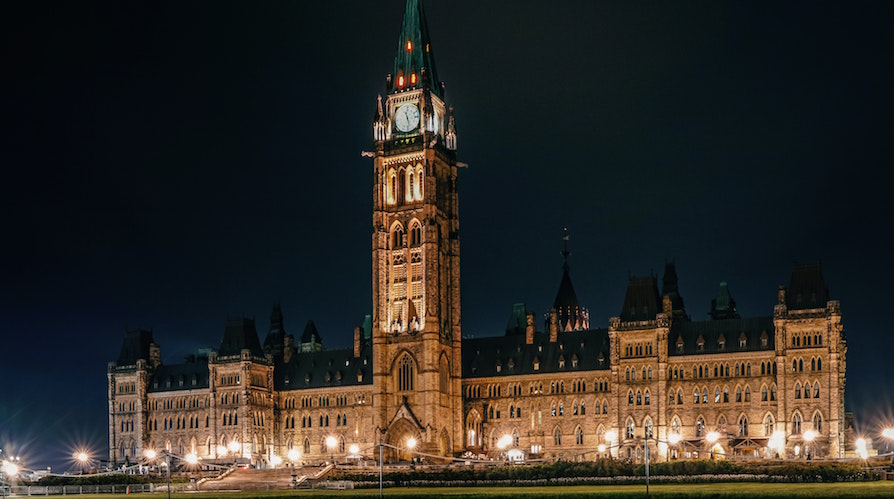Throne Speech Confirms Immigration’s Role in Canada’s COVID-19 Recovery
Governor General Reaffirms Canada’s Commitment to Immigration Despite Pandemic
In Canada’s recent televised Throne Speech, Governor General Julie Payette announced that immigration would be a critical “driver of economic growth” throughout the COVID-19 pandemic recovery and reinforced Canada’s ongoing commitment to increasing the number of permanent residents.
The speech, which took place in front of Parliament on September 23, was the government’s first official announcement that Canada would prioritize immigration in its economic recovery plan since the pandemic began earlier this year.
“As part of both the short-term economic recovery and a long-term plan for growth, the government will leverage the advantage we have on immigration to keep Canada competitive on the world stage,” Governor General Payette stated.
How Canada plans to put this into action will be determined by Prime Minister Justin Trudeau’s mandate letter to Immigration Minister Marco Mendicino, which will outline the Liberal government’s action plan for the coming months.
This could potentially include the new Municipal Nominee Program and abolished Canadian citizenship fee that the liberal government had announced prior to the pandemic. However, we won’t know for sure whether they become delayed any further until the immigration plan is officially announced in the coming months.
Immigration Targets Pre-Pandemic
Immigration Minister Marco Mendicino must also deliver a new immigration levels plan to Parliament in late October or early November.
Before the global pandemic, Canada had planned to welcome 342,000 new immigrants in 2020, but so far, only welcomed 117,000 by the end of July. The reason for the low figures is the ongoing travel restrictions that bar most non-essential travel to Canada.
The travel restrictions first put in place back in March have since been extended until October 31 but are expected to remain in place indefinitely as COVID-19 case numbers continue to increase across Canada.
In spite of everything that has unfolded over the past several months, Payette remains optimistic, describing the current global climate as ‘an opportunity.’
“With other countries rejecting global talent that could help their economy, Canada has an opportunity as we recover to become the world’s top destination for talent, capital, and jobs,” she told Parliament.
“When people choose Canada, help build Canada, and make sacrifices in support of Canada, we should make it easier for them to formally become Canadian.”
Study Highlights The Importance of an Immigration Focused Pandemic Recovery
Survey Finds Job Loss and Financial Difficulty Amongst Immigrants During Pandemic
Canada’s post-pandemic financial recovery must be immigration focused, based on the findings from a recent study conducted by the World Education Services (WES).
WES is a provider of Educational Credential Assessments (ECAs)in Canada, which is used to verify that an immigrant’s foreign credentials are equivalent to Canadian ones. Immigration candidates are often required to obtain an ECA when submitting economic class applications to the federal government or a province or territory.
For their recent study titled “How Has COVID-19 Impacted the Financial Well-Being of Immigrants, Temporary Workers, and International Students in Canada?” over 1,800 permanent residents, international students, and temporary foreign workers living in Canada were surveyed by WES to help them gain a better understanding of the impact that COVID-19 has had on their economic health.
Here’s what they found:
Loss of Income
WES reported that 15 per cent of all respondents lost their jobs due to the COVID-19 pandemic, making it difficult to afford their rent or make mortgage payments. International students also experienced income loss, with 34 per cent finding it difficult to afford rent or utilities.
Additionally, 24 per cent of permanent resident respondents said they had lost their main source of income. For temporary foreign workers, this number was 22 per cent.
Fortunately, to help offset this loss in income, many immigrants were able to receive emergency benefits such as the Canada Emergency Response Benefit (CERB) and Employment Insurance (EI).
Those receiving EI or CERB were largely made up of permanent residents and temporary workers (90 per cent), according to the WES survey.
Unfortunately, very few international students were able to receive either benefit due to the eligibility requirements which requires applicants to have received an income of at least CAD$5,000 in 2019.
However, permanent residents who are also students were able to receive payments from the Canada Emergency Student Benefit (CESB), an emergency benefit for Canadian and permanent resident students.
How COVID-19 Has Affected Canada’s Economy – And What Needs to Happen Next
While Canada’s economy has begun to improve in recent months, it’s estimated that 2 million Canadians, including permanent residents, international students, and temporary foreign workers lost their jobs due to the pandemic.
Now, with emergency benefits set to end soon, there is a dire need for a recovery plan with focus on immigrants in Canada, says WES.
“Supporting immigrants, temporary workers, and international students now is also an investment in Canada’s future. In the short term, the crisis has caused the economy to shed jobs at an unprecedented rate,” said WES. “But in the long term, the nation’s aging population and low birth rates mean that there will not be enough Canadian-born workers to meet the economy’s growing demands. These talent shortages can only be addressed through robust immigration and the effective integration of landed immigrants into Canada’s labour market.”
Ontario To Introduce New Expression Of Interest System
Province Announces Proposed Changes to Ontario Immigrant Nominee Program
Ontario has announced changes to its Immigrant Nominee Program that will pave the way for a new Expression of Interest (EOI) system for certain immigration streams.
The announcement was made via a proposal published on September 8 by the Ministry of Labour, Training and Skills Development, and explained that the new proposed EOI system would function the same way as the federal Express Entry System.
Once it is rolled out, this new Expression of Interest system would be used for the following existing streams to help manage the application process:
- Employer Job Offer Category: Foreign Worker
- Employer Job Offer Category: International Student
- Employer Job Offer Category: In-Demand Skills
- Masters Graduate
- D. Graduate
How The New EOI System Will Work
The proposal also included information on how applicants from Ontario’s new EOI pool would be ranked and selected. As previously mentioned, the proposed EOI application process will be similar to that used under the federal Express Entry system as well as EOI systems adopted in other provinces.
Here’s how it will work:
Step 1
OINP applicants will be invited to submit a profile to Ontario’s new EOI system, upon which they will be added to a pool.
Step 2
Next, applicants will be asked to provide their personal information along with any other labour market and human capital information that can be used to determine who receives an Invitation to Apply (ITA).
Step 3
The province will rank the applicants based on the information provided in their EOI. Specific details regarding which factors or point totals will determine a candidate’s ranking have not yet been released. All that is currently known is that the number of points a candidate is given will be based on factors such as level of education and language.
Afterwards, the scores will be evaluated and ITAs will be issued to the selected applicants. Applicants who receive an ITA will then be able to apply to be nominated under the OINP stream.
Why These Changes Are Happening
The proposed changes to Ontario’s immigration system were introduced “to more strategically manage intake, increase the OINP’s labour market responsiveness and better respond to regional labour market needs.”
This comes after many OINP streams had previously experienced difficulties in the receipt of applications. One example is the Employer’s job offer: International student stream, which recently reached its capacity only minutes after opening. The Employer Job Offer: Foreign Worker stream also experienced a similar situation in July.
It’s important to note that the proposed changes must go through a 45-day public consultation period first before they are formally adopted. The public consultation will end October 23, 2020.
Photo Credit: Bobby H. https://www.flickr.com/photos/mpd01605/3809837021/
New Program is Launched to Provide Immigrants With Mental Health Services
Newcomers’ Health and Well-Being Program Will Focus on Preventative Care
A new Ontario-based organization called the Newcomers’ Health and Well-Being Program aims to provide newcomers with holistic mental health services as a part of their settlement in Canada.
This initiative was created in association with the Canadian Mental Health Association and the York Region & South Simcoe (CMHA-YRSS) – a branch of a national non-profit organization serving the York Region in the GTA – and will focus on improving the mental health and overall well-being of immigrants and refugees aged 12 years and older.
This includes working towards improving communities’ capacity to respond to the needs of newcomers and ensure that they continue to be supported beyond their involvement in the program.
“This [means] working to ensure that those within the community know what to look for when working with newcomers and the ways in which they may explain that they are in mental distress without specifically discussing mental health. It will also take into consideration the experiences of the newcomers and various experiences which may be causing them mental distress,” Jun Maranan, CMHA-YRSS Newcomers’ Health and Well-being Director of Services, told CIC News.
The program offers a broad range of mental health and outreach activities including:
- Mental and physical health assessment
- Counselling and psychotherapy
- Health and wellness promotion and training
- Family counselling
- Trauma-specific services
The organization will also ensure that the spiritual and religious needs of the newcomers it works with are met while providing tailored services in their native language that are unique to their own personal journey.
The organization has received $2.2 million in funding from Immigration, Refugees and Citizenship Canada (IRCC) for three years to help the Newcomers’ Health and Well-Being Program create a safe and welcoming space for the delivery of mental health care services while meeting the needs of each newcomer it serves in a personalized and comprehensive manner.
Why Immigrants And Refugees Are More Susceptible to Mental Health Struggles
According to a recent study published by Statistics Canada and the IRCC, immigrants and refugees are particularly vulnerable to mental health struggles due to the stress that comes from experiencing cultural differences, language barriers, and integration into a new society.
“Some of the mental health concerns seen by the newcomer population include PTSD from experiences in their home country, acculturative stress, grief and loss,” said Maranan. “Studies also show that the refugee and immigrant population have a significant increase in the incidents of mental distress, depression, anxiety and impacts of trauma.”
Furthermore, many newcomers are often unaware of the mental health services that exist, while others that are aware can be reluctant to seek out help.
The new Newcomers’ Health and Well-Being Program hopes to address these issues in order to help newcomers better integrate to Canada while helping them address their mental health concerns.
To learn more about the Newcomers’ Health and Well-Being Program, visit their website at: https://cmha-yr.on.ca/learn/news/newcomerprogram/
The National Security and Intelligence Committee of Parliamentarians Act is Constitutionally Challenged
What is the National Security and Intelligence Committee of Parliamentarians Act?
In 2017, the National Security and Intelligence Committee of Parliamentarians (‘NSICOP’) was created “to ensure that Canadian law enforcement and intelligence operations and their corresponding agencies are compliant, efficient and effective.”[1]Therefore, the National Security and Intelligence Committee of Parliamentarians Act (‘the Act’) was created to protect any intelligence oversight and make agencies, such as CSIS, accountable for their actions including any abuses.[2]However, in doing so, parliamentary privilege was taken from the members of NSICOP through s 12 of the Act.[3]
Section 12 Of The Act Is Deemed Unconstitutional By Professor Alford
On June 12, 2017, many intellectuals presented arguments about the constitutional validity of the Act at the proceedings of the standing senate committee on national security and defence.[4]One speaker, Professor Alford, an associate professor at Bora Laskin Faculty of Law at Lakehead University, stated that the Act is “a serious threat to parliamentary sovereignty to say that these people, who are essentially now just on an advisory committee to the Prime Minister, are prevented from acting in their capacity as parliamentarians in a way which is constitutionally deficient.”[5]More importantly, Professor Alford believes that s 12 is unconstitutional because it “prevents Parliamentary privilege from being invoked if a member of the National Security and Intelligence Committee of Parliamentarians is prosecuted for disclosing protected information.”[6]Although the Senate was challenged with arguments presenting foreseen problems, the Act came into force on October 6, 2017.[7]
The Decision of the Ontario Superior Court of Justice
In 2018, Professor Alford, brought an application to the Ontario Superior Court of Justice (‘ONSC’), arguing that the removal of parliamentary privilege, which is “a fundamental alteration of the powers of the Senate and House of Commons,”[8]is unconstitutional.[9]
Nevertheless, the Court believed that Professor Alford could not move forward with a constitutional challenge nor could he be given any Standing to his application.[10]Justice W.D. Newton determined that Professor Alford was not considered a person “directly affected by the issue”[11]and lacked “a concrete factual context”[12]even with his credentials as an academic and his expertise in constitutional law.[13]
The Decision of the Ontario Court of Appeal
Professor Alford appealed the decision at the Ontario Court of Appeal (‘ONCA’) where the Court determined that Professor Alford does, in fact, have a public interest Standing.[14]The Court expressed the importance of the issue raised by Alford, that he is an individual who has an interest in the matter, that “he is highly competent and able to represent the constitutional issues at stake,”[15]and, therefore, his interest in the matter goes beyond academia but the publics interests and Canadian democracy as well.[16]
Will Professor Alford Succeed in his Constitutional Challenge?
Although neither ONSC nor ONCA discussed the application of Professor Alford on its merits of its constitutional challenge, it will be interesting to see whether the Applicant is successful in arguing the constitutional validity of s 12 of the Act in the future.
[1]Peter Chalk, “Domestic Counter-Terrorist Intelligence Structures in the United Kingdom, France, Canada, and Australia” (2020) Studies in Conflict Terrorism 1 at 15.
[2]Alford, “Bill C-59 and the Former Bill C-22: Compromised Oversight and Continuing Threats to Non-Derogable Rights” (2018) 69 UNBLJ 57 at 68.
[4]Senate of Canada, Proceedings of the Standing Senate Committee on National Security and Defence, Evidence, 42:1, No 16 (12 June 2017).
[5]Senate of Canada, Proceedings of the Standing Senate Committee on National Security and Defence, Evidence, 42:1, No 16 (12 June 2017) at 18:35 (Ryan Alford).
[6]Alford v Canada (Attorney General), 2019 ONCA 657 at para 1.
[7]National Security and Intelligence Committee of Parliamentarians Act, S.C. 2017, c. 15
[8]Alford v Canada (Attorney General), 2018 ONSC 3984 at para 5.





